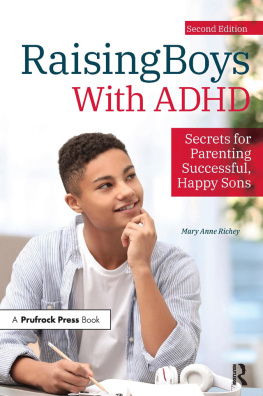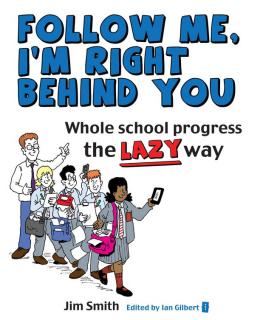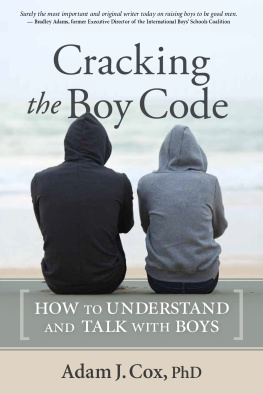Contents
Hes Not Lazy
Empowering Your Son to Believe In Himself
Adam Price, PhD


Sterling and the distinctive Sterling logo are registered trademarks of Sterling Publishing Co., Inc.
2017 by Adam Price
All rights reserved. No part of this publication may be reproduced, stored in a retrieval system, or transmitted in any form or by any means (including electronic, mechanical, photocopying, recording, or otherwise) without prior written permission from the publisher.
Excerpt from THE PROPHET by Kahlil Gibran, copyright 1923 by Kahlil Gibran and renewed 1951 by Administrators C.T.A. of Kahlil Gibran Estate and Mary G. Gibran. Used by permission of Alfred A. Knopf, an imprint of the Knopf Doubleday Publishing Group, a division of Penguin Random House LLC. All rights reserved.
ISBN: 978-1-4549-2645-0
Library of Congress Cataloging-in-Publication Data
Names: Price, Adam, (Psychologist), author.
Title: Hes not lazy : empowering your son to believe in himself / Adam Price.
Description: New York City : Sterling Publishing Co., 2017. | Includes
bibliographical references and index.
Identifiers: LCCN 2016009991 | ISBN 9781454916871 (hardback)
Subjects: LCSH: Teenage boys--Psychology. | Parenting. | Maturation
(Psychology) | BISAC: FAMILY & RELATIONSHIPS / Life Stages / Adolescence.
| FAMILY & RELATIONSHIPS / Parenting / General. | PSYCHOLOGY /
Developmental / Adolescent.
Classification: LCC HQ797 .P75 2017 | DDC 305.235/1--dc23
LC record available at https://lccn.loc.gov/2016009991
For information about custom editions, special sales, and premium and corporate purchases, please contact Sterling Special Sales at 800-805-5489 or .
sterlingpublishing.com
Contents
To my family: Beth, Jonah, and in loving memory of Sam.
Introduction
Recently I bumped into the mother of a young man I treated some years ago, a boy named Kyle. This is a moment of truth for any child psychologist. Usually our patients graduate from therapy and move on to the next stage of their lives; we rarely get to find out whether our efforts had any lasting effect.
When I first met Kyle as a tenth grader, he was floundering in school. Though he didnt exhibit the warning signs of a truly troubled adolescentdrug use, outright rebellion, cutting school, or violent outburstshed grown completely and utterly apathetic in the academic sphere. He was seriously phoning it in, which is why his parents had given him the nickname Mr. Bare Minimumhe did just enough to stay above the fault line, getting a D in Spanish and a mix of Bs and Cs in his other classes. Although he did see friends on weekends, when he was home Kyle spent most of his time in his room, curtains drawn, in front of a computer screen. He was very difficult to rouse in the morning and was often late for school. His parents were so worried that Kyles lack of motivation would have very real repercussions on his future, they went so far as to have him tested by a psychologist for learning disabilities. The psychologist observed, Kyle has lost his motivation to succeed at school, and does not do his homework. Instead he prefers to text his friends, listen to music, and play video games. He feels that nothing about school interests him, and has failed several tests that he did not study for. Yet the doctor made no suggestions about how to help Kyle get more motivated. After reading the report I understood why Kyles parents were so frustratedhis IQ was in the ninety-first percentile.
They, like so many of the parents I see, were overwrought. How could a boy with so much promise risk his future by not even attempting to earn the grades that would get him into a good college? Nothing they did seemed to make a difference. Grounding only made Kyle belligerent, but backing off left him to flounder even more.
Kyle was typical of the kind of patients Ive come to see more and more of in the practice I maintain in New York City and New Jerseyboys described by teachers and counselors as good kids, but who very obviously lack the motivation to succeed in middle and high school.
Much has been written about the kinds of pressures kids are under today. But the media coverage tends to focus on the problems of the super-achieving academic elitekids who are enrolled in multiple Advanced Placement courses and volunteering at the local soup kitchen while mastering an obscure Chinese classical instrument and holding down spots on several sports teams. Though these kids, whose parents take a Harvard-or-bust mentality, are under real pressuresas evidenced by the very disturbing rise in the abuse of stimulant drugs as study aidsthere is another, typically overlooked class of boys who manifest their stress in different, less obvious ways. These are the boys I worry aboutthe ones who make time for Netflix, video games, Snapchat, Facebook, Instagram, and friends, but not for school. Many, like Kyle, do the minimum thats required in order to get by, flying under the radar of official trouble while causing their parents plenty of grief and consternation.
Though they look like theyre impervious to academic pressures on the outside, their behavior is, in fact, a direct response to the stress theyre experiencing. Contrary to appearances, these kids arent just lazytheyre overcome by demands that they fear they simply cannot meet. And so, in the face of pressures they feel they cannot handle, they choose to opt out of the competition altogether. These opt-outs are the subject of this book.
There is no question that our achievement-oriented, competitive culture has created a pressure cooker for todays adolescent. Teenage boys are extremely sensitive to this stress, and as a psychologist I see its victims daily. Bright and capable boys complain of feeling inadequate and ineffective. But rather than working harder and staying up later, they react to this pressure by shunning their work altogether, propping up their fear-based rebellion with justifications like I am not going to be one of those nerds who have no life, or Tests dont measure intelligence or help you learn, so whats the point of studying for them? They protect themselves by turning to avoidance and denialthe primary coping mechanisms of adolescence.
The world through which these boys are navigating is infinitely more complex than that experienced by their parents. Regardless of the quality of their schools, kids these days are being asked to juggle like never before. Over the past twenty years, high school students have added an extra class to their school days, with 7 percent also taking more rigorous courses. As much as technology may enrich the learning experience, it has also created an information overload for students. Teachers email assignments to kids after class and deadlines are pushed to midnight, thanks to Turnitin.com. Gone are the days of handwritten term papers and poster-board presentations. Now students must be able to create flashy Excel slide decks, participate in wikis, tweet reading responses to their classmates, and post on class Facebook pages. Their extracurricular activities are generally plentiful and variedpart of a hyperextended college prep process begun as early as elementary school. Meanwhile, their friends are texting (incessantly) and their online world of choice awaits, buzzing with messages and notifications as soon as the dismissal bell rings, if not throughout the school day.
















